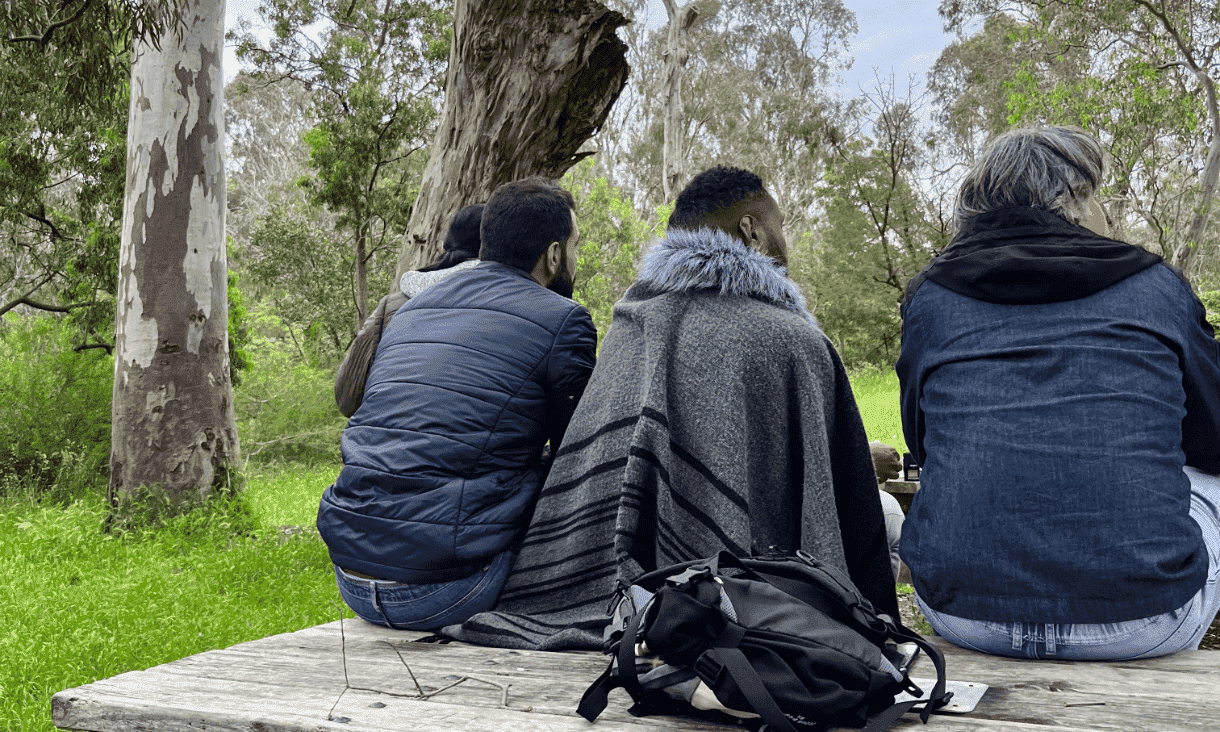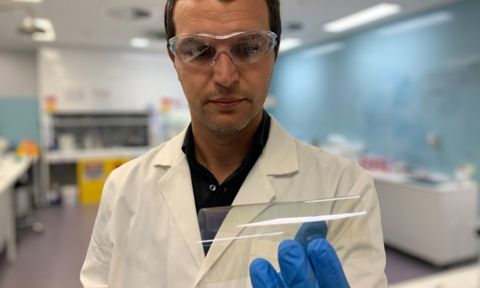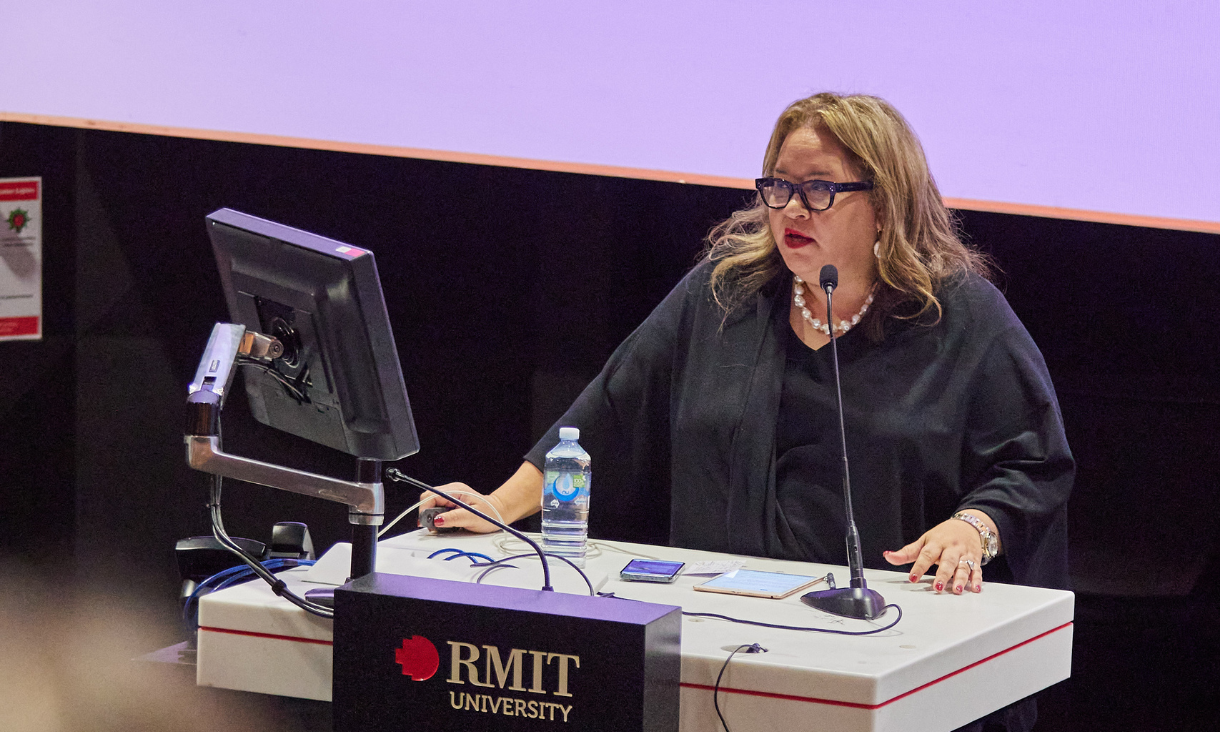The researchers realised that many of the group had rarely connected with nature since leaving their country of origin and the study included unique wildlife encounters: watching birds in the Darebin Parklands and flying foxes in Yarra Bend Park.
“Not only are we seeing the group form a bond with nature – we’re also noticing how being in these environments is inspiring a closer connection to each other and helping to develop new relationships within this community,” Opacin said
For the researchers, this social aspect and the concept of creating a safe space is as important as observing the positive impact of nature on the participants, some of whom had to flee their home to start a new life.
These experiences have taken their toll on mental health, and the facilitators from Many Coloured Sky were pivotal in helping to build confidence among the participants to take part in the study and start addressing the challenges they face.
“There are a lot of trauma-related issues with our population; it’s important that we act sensitively and acknowledge that personal stories and circumstances affect people in different ways,” Opacin said.
“Mental health issues such as depression can affect motivation and make it impossible sometimes even to get out of bed, to leave the house or do anything else but worry.”
“Over the course of the pilot study we’ve seen positive changes and individuals starting to share personal things with each other; in my role as both researcher and facilitator, I’m sensing that the group is growing both in connectivity and trust.”
The simplicity of the activities also allows space for self-reflection – be it through contemplation of the open sea or listening to birdsong – and is helping to reduce anxiety, with some participants reporting that ‘the calmness of nature’ makes their problems seem less troubling.
Once the pilot is over, the researchers hope that the group feels empowered to continue taking advantage of nature in the city, together.
Project partners at the recent RECECTAS consortium meeting in Austria shared their experiences about the interventions taking place in all six pilot cities in preparation to commence the main studies in Barcelona, Marseille, Prague, Helsinki, Cuenca and Melbourne later this year.
The long-term goal is to see the nature-based social prescription model widely distributed in all levels of society to help anyone experiencing loneliness and other mental health issues.
This article has been written for European Mental Health Week (22 to 28 May) which this year focuses on Mentally Healthy Communities and aims to increase understanding and learning about mental health in our communities, schools, workplaces and at home so that everyone can thrive and flourish at every stage of life.
In 2023 RMIT Europe is celebrating the significant milestone of its 10-year anniversary of operations in Barcelona. To learn about RMIT's history in Europe and keep up with the latest news and events, visit the #RMITEurope10 webpage and follow RMIT Europe on Twitter, LinkedIn and Instagram.
Story: Hannah Tribe









